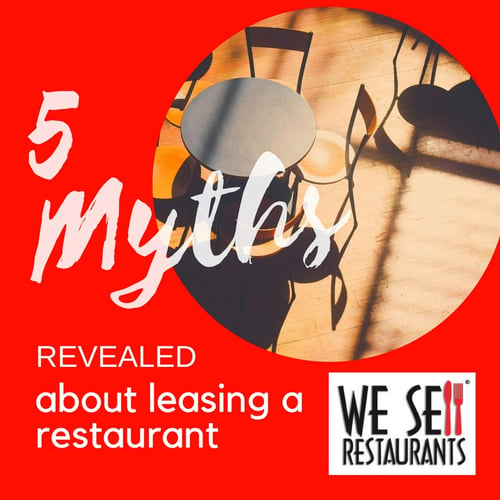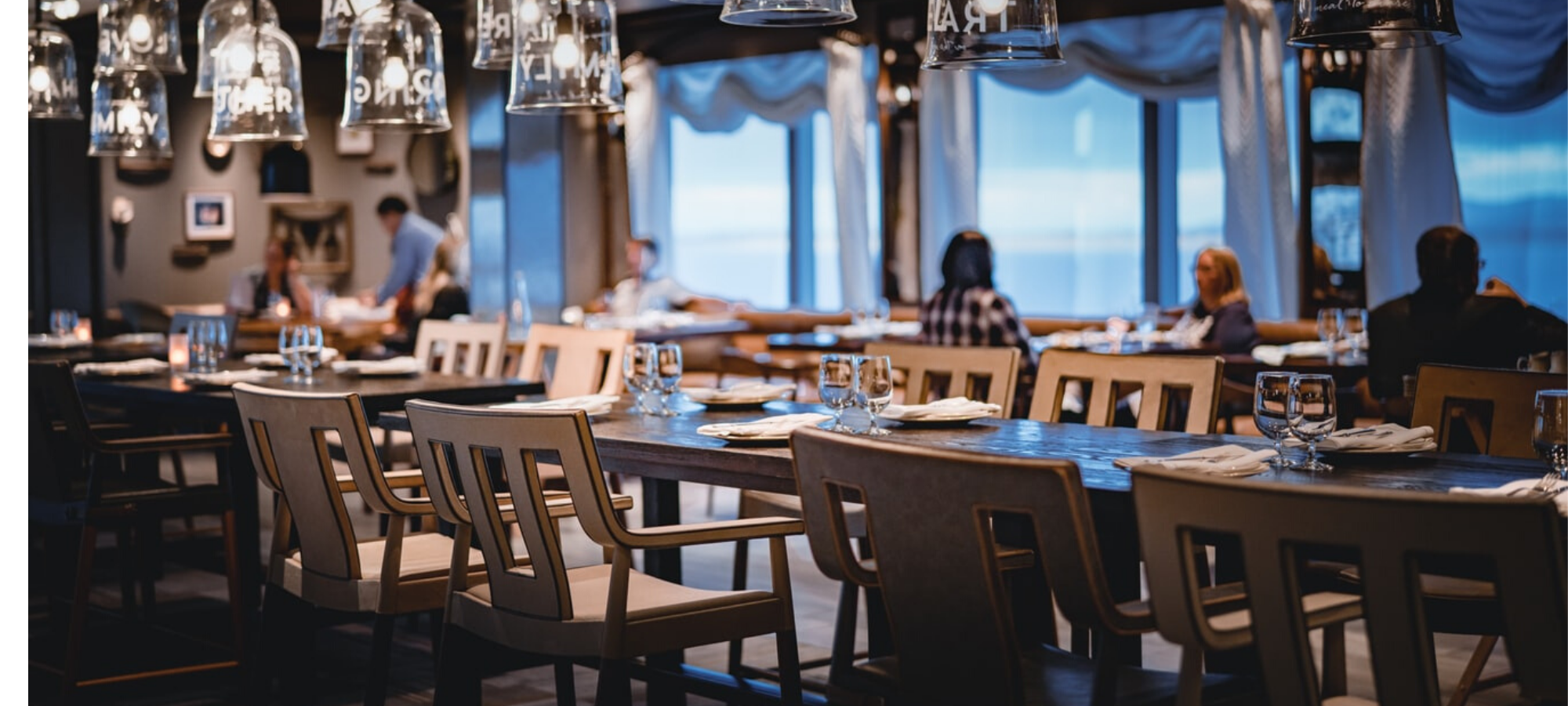We Sell Restaurants is busting the myths and telling the cold, hard truth about leasing a restaurant. Understand this before attempting to transfer or assign a restaurant lease.

Myth #1: Restaurant Lease Transfer is Easy
Assuming that you can call the landlord and tell him about the new tenant and all will be well is a naïve approach. That lengthy agreement you signed way back when typically puts all the power in the landlord’s hands. This can include the cost to transfer, the time to transfer and obviously, the agreement to transfer or assign the existing lease.
Want to hear some horror stories on this topic? Don’t get us started. We Sell Restaurants and our expert restaurant brokers can attest to dozens of instances where a landlord has sent a deal crashing to the ground. Quite frequently, buyers and sellers are resorting to getting a strong attorney involved on the lease transfer process.
Myth #2: The landlord application process or “package” is straightforward and simple when leasing a restaurant.
Landlords want paper and lots of it. It’s not uncommon to see a request for a personal financial statement, consent to credit check, multiple years of tax returns, a check for the transfer fee, a business plan and much more.
Are they entitled to all that information? Unfortunately, the answer is yes. They are performing their own financial due diligence. They can request the experience basis of anyone applying for space in their center.
One tip to overcome this issue is to provide everything. Getting their package right the first time will cut down on the games landlords play in approving or failing to approve a new restaurant lease tenant. Complete the document in it’s entirely. Submit any required fees in the form of the lease transfer fee. Submit it both electronically and in paper. Track the delivery using a paid service with a receipt so you can verity when it was submitted. The last thing you want to do is fail to get the restaurant lease approved because you didn’t get the paperwork right.
Myth #3: Assignment of a Restaurant Lease relieves the current tenant of any Obligations on the Personal Guarantee
Someone buying or selling a restaurant must fully understand their obligations when it comes to the personal guarantee or ongoing financial requirements of the lease. A personal guarantee is almost always required by a landlord. Frequently, they will attempt to retain the seller on the guarantee unless you have negotiated up front, the conditions under which you will be removed. In most cases, absent any form of an agreement previously reached and outlined in the lease, landlords will always keep the old party on the restaurant lease.
Are there ways to minimize the guarantee? Yes. You, your attorney, or your restaurant broker can attempt to minimize the amount of the guarantee a seller remains liable for. They can attempt to cap the guarantee, put a time frame on it or otherwise keep the liability limited to the new buyer. If the new buyer has superior financials to the seller, this is less of a concern as they will always go after the biggest fish first. If a seller has the greatest assets, it’s best to negotiate this down first
If the landlord refuses to relieve you of the liability, you can circle back to the buyer for what’s commonly termed a ‘wrap-around’ or indemnification. This legal agreement can allow a seller to pursue a restaurant buyer personally against some form of secured assets if he should default, leaving the landlord to pursue a seller that’s no longer operating in the space.
Myth #4: Landlords Have a Duty and Financial Incentive to Transfer a Lease
It’s best to know up from this fact about restaurant leases. Landlords have absolutely zero incentive to cooperate or assist in a transfer. The money for a landlord is made by leasing a new restaurant space. In the case of a transfer, he or she, has a tenant in place. They are paying rent and they have a personal guarantee. Ergo, there is absolutely no financial incentive to do anything as it relates to an assignment. For that reason, landlords drag their feet, refuse to move and overall act like the biggest impediment to ta transfer on a restaurant space for sale.
Myth #5: Landlords execute restaurant lease transfers in a timely manner.
The last myth to understand is that a landlord does not move quickly. The landlord cannot, will not, and typically refuses to move on anything other than their own time frame. This is related to the prior myth about financial incentives. They want their representatives leasing new restaurant space and their legal teams drafting new leases, not dealing with those already in place. Without a financial incentive to act, they work in their own time.
That leaves countless restaurant buyers and sellers stranded while they wait on this transaction to occur. What are the pressure points you can bring to bear? First, leverage your relationship with the local representative if you have a good one. Secondly, ask a franchise leasing department to intervene on your behalf. Lastly, go up the chain of command. As a restaurant broker, I frequently resort to a google search of the VP or Senior VP for the area to escalate a claim to move. This sometimes works and in some cases, angers the assignment team so much, they will just slow walk it more.
If you have been patiently waiting and making professional requests for follow up with no response, it may be time to involve an attorney. Get them to review the lease and ask the landlord why they are failing to meet the lease language that in most cases states, they “may not unreasonably withhold consent.”
That’s it. Better to be armed and ready with information than taken advantage of by the landlord. Need help in getting your restaurant lease transferred? Reach out to the Restaurant Brokers at We Sell Restaurants and we can help. If you choose to negotiate on your own, you're now in a better position since we just revealed to you the five biggest myths about leasing a restaurant.


 404-800-6700
404-800-6700.png)










